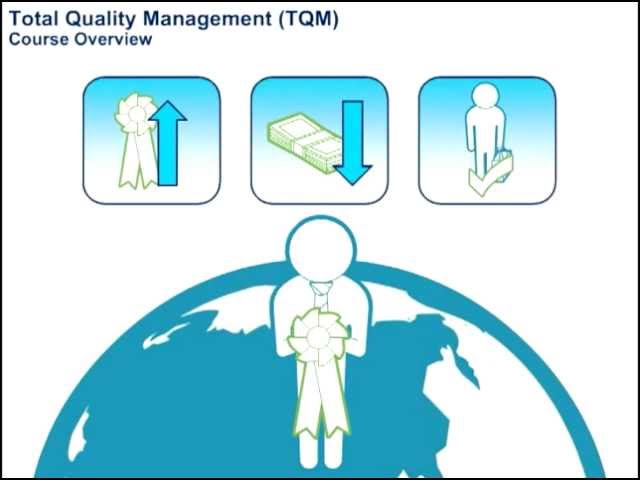Total Quality Management (TQM) is a business approach to achieving customer satisfaction by improving quality and efficiency in all aspects of a company’s operations. It involves all members of the organization, from top management to employees, working together to ensure that customer needs and expectations are met. TQM is based on the idea that quality should be built into the product or service from the very beginning, and that continuous improvement of processes and procedures is necessary to ensure customer satisfaction.
What is Total Quality Management?
TQM is a management philosophy that seeks to integrate all organizational functions to focus on meeting customer needs and organizational objectives. It is based on the principles of quality assurance and continual improvement. The goal of TQM is to provide products and services that meet or exceed customer expectations. TQM requires that all employees be involved in the quality improvement process, from top management to frontline employees. It also emphasizes on the use of data and facts to make decisions, and on the use of process improvement and corrective action to eliminate root causes of problems.
Benefits of Total Quality Management
The primary benefit of TQM is increased customer satisfaction. By focusing on quality, companies can ensure that their products and services meet or exceed customer expectations. This can lead to increased customer loyalty and increased sales. Additionally, TQM can lead to increased efficiency, reduced costs, improved employee morale, and increased productivity. Finally, TQM can help a company to remain competitive in the marketplace by ensuring that its products and services are of the highest quality.
Implementing Total Quality Management
Implementing TQM requires a commitment from top management and all members of the organization. It also requires an understanding of the principles of TQM and how to apply them. The following steps can help an organization to implement TQM:
- Establish a clear vision and set of objectives.
- Develop a quality culture.
- Establish processes and procedures.
- Measure and monitor performance.
- Continually improve processes and procedures.
Establish a Clear Vision and Set of Objectives
The first step in implementing TQM is to establish a clear vision and set of objectives. This will provide direction and focus for the entire organization. It should be communicated to all members of the organization, so that everyone understands the overall goal and how their individual actions contribute to the organization’s success.
Develop a Quality Culture
A quality culture is an environment where quality is emphasized and everyone is committed to achieving customer satisfaction. It is important to create an environment where everyone is focused on quality and is willing to take ownership of the quality of the organization’s products and services. This can be done by providing training, recognition, and rewards for quality achievements.
Establish Processes and Procedures
The next step is to establish processes and procedures that ensure quality. This includes identifying customer needs and expectations, establishing quality standards, and developing processes and procedures to meet those standards. It is important to ensure that these processes and procedures are followed consistently, and that they are regularly reviewed and updated.
Measure and Monitor Performance
Once processes and procedures have been established, it is important to measure and monitor performance. This includes collecting data and analyzing it to identify areas for improvement. It is also important to track customer feedback and use it to identify areas for improvement.
Continually Improve Processes and Procedures
Finally, it is important to continually improve processes and procedures. This includes making changes to processes and procedures to ensure that customer needs and expectations are met. It also involves using data and customer feedback to identify areas for improvement. By continually improving processes and procedures, a company can ensure that its products and services remain of the highest quality.
Total Quality Management is an important tool for businesses that want to ensure customer satisfaction and remain competitive in the marketplace. By implementing TQM, companies can ensure that their products and services meet or exceed customer expectations and that they remain competitive in the marketplace. TQM requires a commitment from top management and all members of the organization, and it requires an understanding of the principles of TQM and how to apply them. With the right commitment and understanding, TQM can be an effective tool for businesses to ensure customer satisfaction and remain competitive.




